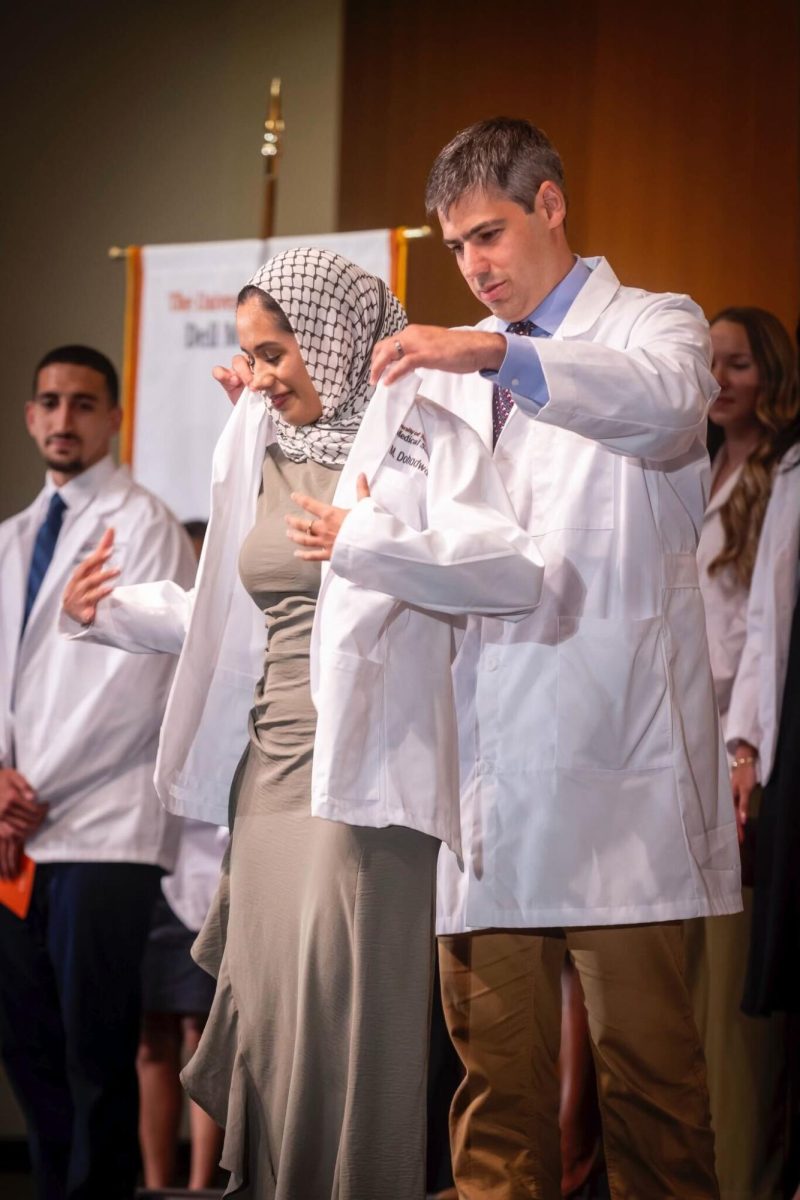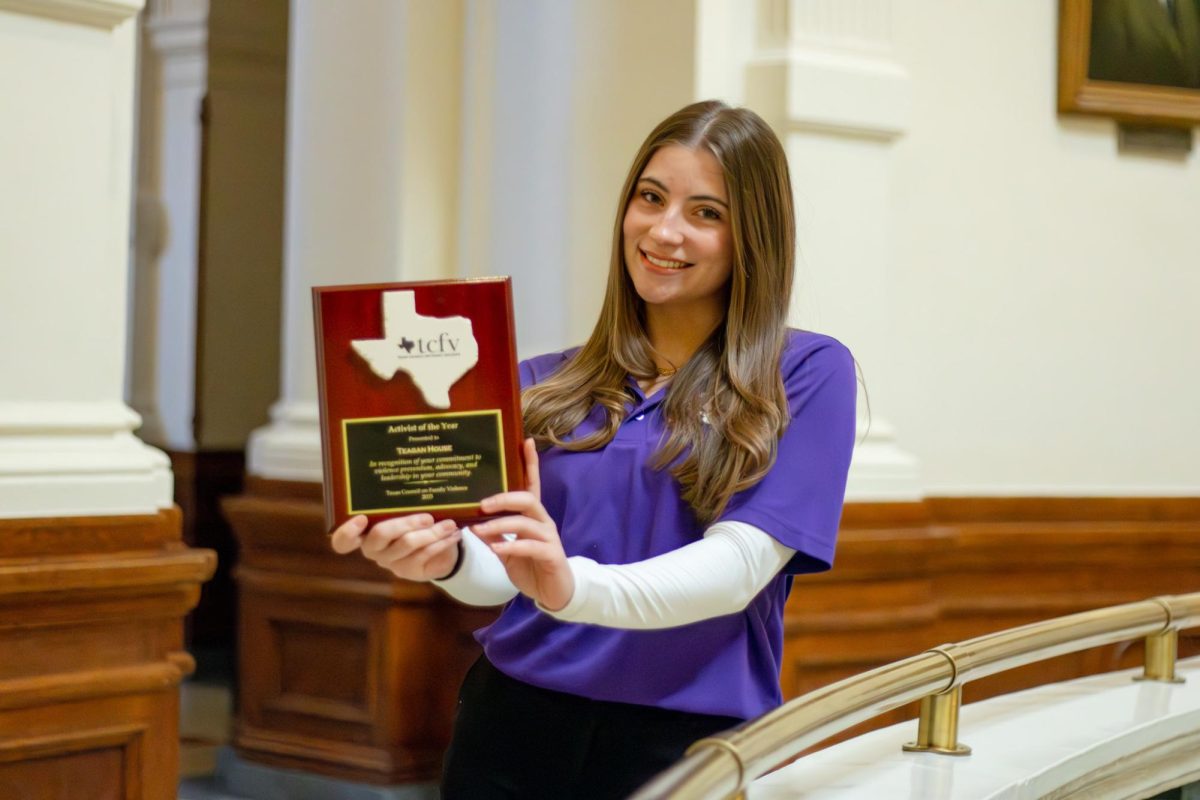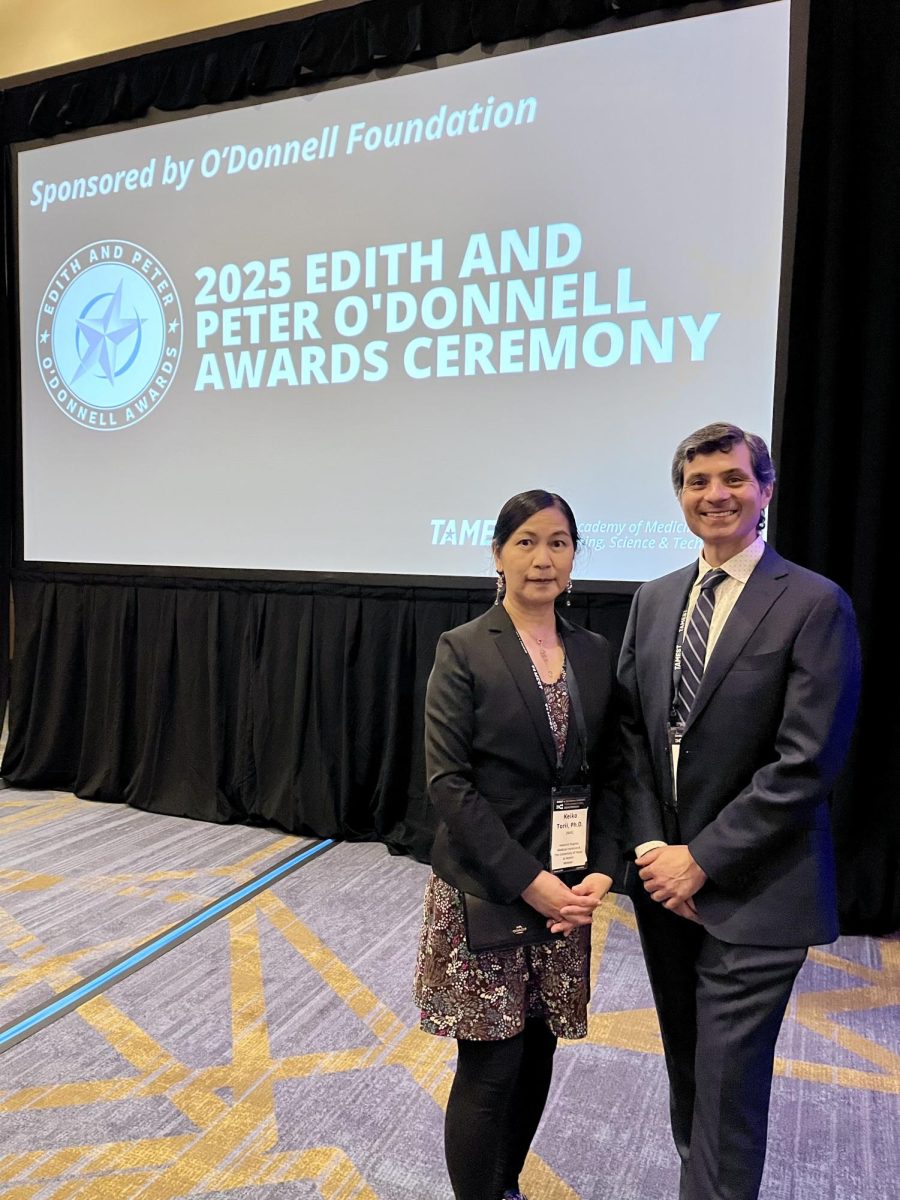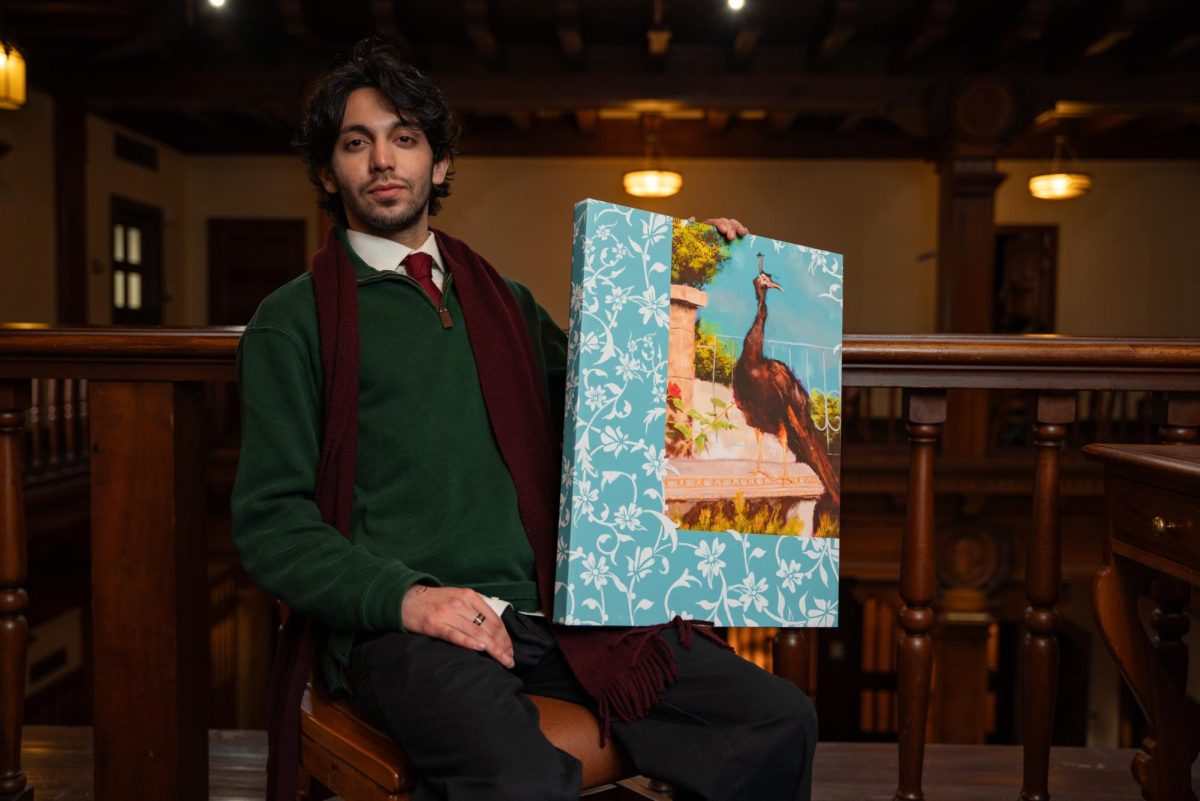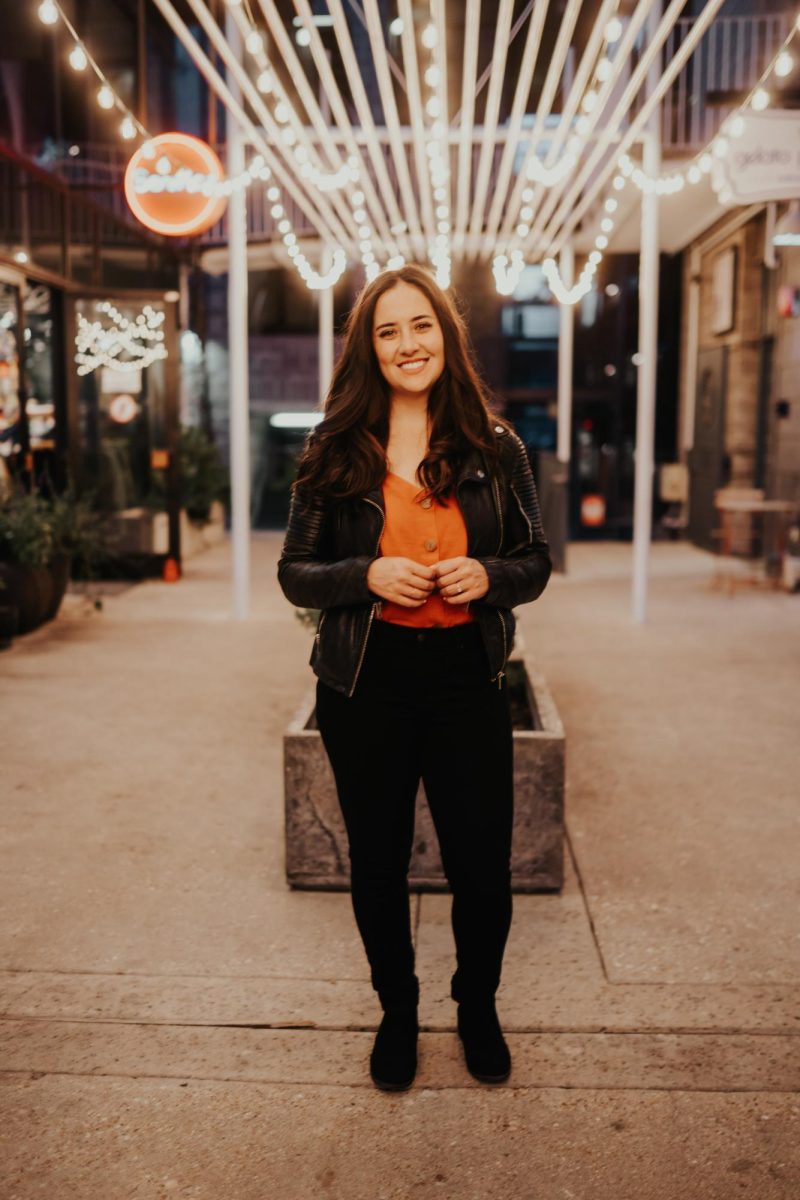As the white medical coat settled onto her shoulders for the first time, Fatema Dohadwala took one step closer to her lifelong dream — becoming a physician.
“As a first generation student, (going to medical school) sometimes felt a bit out of reach,” Dohadwala said. “It felt empowering to know that I’m finally in a place where I can fulfill that dream.”
On Aug. 15, the 50 students in Dell Medical School’s class of 2028 received their first white coat and recited the Hippocratic Oath for the first time. The traditional event, called the white coat ceremony, took place after six weeks of clinical skills training and marks the beginning of four years of medical school. Dr. Scott Selinger, Dohadwala’s instructor and clinical assistant professor of internal medicine at Dell, said the white coat students receive are shorter than the ones they will don when they graduate.
“It’s (students’) entry point into understanding their role in learning and caring for their patients,” Selinger said. “The white coat symbolizes a commitment, an oath, a calling. It’s symbolic of them starting to wear that mantle.”
In 1933, the College of Physicians and Surgeons at Columbia University held the first white coat ceremony, according to UNC School of Medicine, before which students received their first coat upon graduation. The practice emphasizes the importance of introducing humanistic medicine alongside scientific medicine as early as possible. Dohadwala said she aims to incorporate her passion for art into her medical practice.
“I didn’t know that was possible until I read the way that Dell incorporates art into medicine,” Dohadwala said. “Medicine is an art, and it means taking into account all the humanistic aspects of an individual’s life when taking care of them.”
Dell Med incorporates the idea of caring for the whole person into their Hippocratic Oath, an important part of the white coat ceremony, which contains additions regarding health equity efforts, Selinger said.
“Rather than just ‘do no harm,’ (the Dell oath states) ‘do no harm by advocating for people to have easier access to health, food and clean living conditions’ and things like that,” Selinger said. “It’s really heartening to see that this is the way that the new generation is trying to take medicine.”
According to Dell Med’s Instagram post, each member of the class of 2028 spent an average of 800 hours on community service, 950 hours on clinical care and 1,100 hours on research before entering medical school. Dohadwala said along with the dedication she put in, she could not have done it without her parents. Her mother, Farida Chhataria, largely inspired her medical aspirations.
“I was in a medical school in India, but coming to the United States, I could not finish my journey,” Chhataria said. “Seeing my daughter achieving and continuing (my) journey, it was (a) proud (moment) for me.”
The ceremony also marked the switch from the race to get into medical school, which was laced with uncertainty, to the pursuit of learning to be the best physician possible, Dohadwala said.
“It’s a big weight lifted off my shoulders,” Dohadwala said. “I know that no matter what obstacles may come, either personally or academically, I have a school that’s going to be there to support me through it.”
Editor’s note: This story was corrected to fix the spelling of a name.

